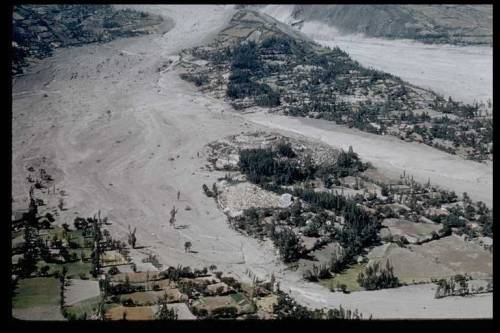Okay, I know the 'g's in the title of the post don't actually form an alliteration. But they create a nice visual alliteration, so it's still kind of cool. And relevant to what I'm going to write about.
I'm in a geology class, a general class at a large university. We've learned about how different rocks are formed and such, and it's been really cool. But I realized that lately I've been walking out of class feeling guilty. That made me stop and try to figure out why. And I realized—it's because we've moved from talking about how things happen in the Earth to how we humans use those resources...or exploit them, or whatever.
It got kind of heated (energetic?) in my class when we talked about energy—wind power, solar power, hydroelectric power, nuclear power, and fossil fuels. There's really no way to discuss the impact these things have on the environment and not feel at least a little guilty or defensive, and at a loss about what to do. All of those sources have negative things about them; None are completely "clean."
My professor said, "When you use a natural resource, you have to pay the price." What price? Mining coal: underground fires, blacklung. Wind: dead birds, ugly, noisy. Nuclear: radioactive waste. Oil: emission of greenhouse gasses. .
Don't mention the word "extinct" or "damaged ecosystems": those will get some people going for a really long time.
So we should all feel really guilty about hurting this delicate planet and we should go back to only using the things we can get for ourselves out in the forest. Right? Pause that discussion while we look at the lessons before and after the natural resources lecture.
Lecture: Natural disasters.
Here are some things jotted down in my notes.
Talking about groundwater
Landslides: Huascarán Peru. Covered nearly the whole town—only the buildings on high ground remain.
During section on hydrologic cycle
Hurricanes: Galveston, 1900. The water rose 18 feet. Killed 6,000 people. Pretty much leveled the whole place.
Unit on igneous rock formation
Volcanoes: Mt St Helens, Toba super eruption induced 10 year volcanic winter (ash in the sky covered the surface of the Earth from the Sun enough to make it seem like winter).
And these even sometimes trigger one of the other ones: earthquakes can set off volcanoes and cause fires; hurricanes naturally cause flooding; flooding can saturate the ground and cause landslides.
Nature is teaming up on itself. Can we still pity it? Do we need to mitigate the damage nature does to itself? (Assuming that we even can do something—there's very little we can do sometimes). But nature is still here, even after all the explosions and ice crashing through its landscapes. Some of these ecosystems were permanently changed. And many individual life forms died.
So where does our concern with offsetting the "delicate balance" come from? If nature does terrible things to itself, why are we concerned with what we do? I thought of a few possibilities.
–We are afraid of being responsible for something. We hate the feeling of looking at destruction and feeling in our gut "I caused this." We want to fix it. Or take it all back. Or we want to deflect blame: some people would prefer to tell people what they're doing wrong, and then when bad things happen, they can say "I told you so."
–We see that things are good only if they stay the same, if they don't change too drastically. We see the death of certain animals in a certain area bad. Even though thousands of species died off when a cloud covered the Earth for many years. Could it be that our preoccupation with keeping things the way they are actually hurts species in the long run?
–We are individualistic, and that may make us short-sighted. We value each human life, so natural disasters are awful for us because they kill a lot of individuals. Yet in nature, while balance is usually the goal, it usually doesn't happen perfectly all the time. And things keep moving forward after mass wasting events occur: animals continue to eat, live, have offspring. So what's the long-term? We measure differently than nature...but does nature even measure?
–I think this one is interesting—we recognize responsibility. We see that we can do better, and that the things we do have consequences not only for ourselves but for the places in which we live.
It is awful that we're not doing better at making our energy consumption cleaner and less pollutive than it is.
So what's the deal here? Nature is able to get through the natural disasters, and is pretty resilient. How is it different when we do things that change how things work?
Well, we don't really know what we're doing, and we can't control or foresee the effects of our actions. We get emotionally involved. We want to live without having an impact on the ecosystems around us.
I don't know if those things are bad or what we need to do, but I think it's interesting all the guilting involved. There are some things we can change, but some things aren't completely up to us...so we maybe need to look at what we can do. And stop making Geol 101 students feel terrible about turning on a light.





No comments:
Post a Comment